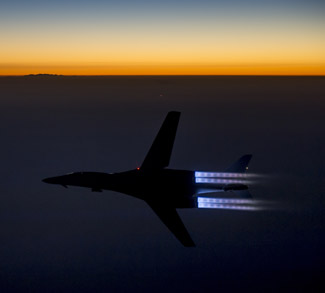In the aftermath of the 50th anniversary of Turkey’s invasion of Cyprus it is crucial to re-examine the policies that have allowed Turkey to act with impunity not just in relation to Cyprus, but more broadly. Turkey’s more recent malign activities across the greater Middle East and overtures toward Russia and Iran in my view make such an inquiry a necessary undertaking.
The core of the problem may be in the mindset of policymakers in Washington, which was eloquently—if only a bit frivolously—described by a former U.S. Ambassador to Turkey, Eric Edelman at a recent event at the Foundation for Defense of Democracies on Turkey.
In his remarks, Ambassador Edelman described Turkey as “too big to fail”, an idiom often used in the context of financial institutions, particularly banks, emphasizing the implicit insurance granted to large banks by financial regulators and supervisors, adversely affecting banks’ behavior. I realized after the event that such a mindset—drawing a parallel between banks and sovereign states—may inadvertently exaggerate the “too big to fail” problem in finance and beyond.
In my twenty-two years at the International Monetary Fund, including as a member of an elite Financial Crisis Management division, I have seen numerous crises caused by banks considered too big to fail, formally known as systemically important banks (SIBs). Neither I nor my colleagues viewed the bigness of a SIB and/or the associated problems as permanent features of a financial system. While viewed as a problem in the short run (and are often politically sensitive to deal with), in the medium run SIBs are either ringfenced or broken up using the power of prudential regulation and financial oversight. The alternative—as everyone in the profession knows—is a sure path to deepening moral hazard, more risk-taking, and more crises in the future.
In contrast, smaller banks are forced to adhere to financial regulatory rules and seldom, if ever, cause systemic crises. The knowledge that the regulators will not hesitate to let them fail should they take excessive risk with their shareholders’ money does marvels in terms of incentivizing them to play by the rules.
Carrying Ambassador Edelman’s parallel forward, it is perplexing why a country, which is a NATO member and is bound by the rules and principles of the Alliance, would be provided implicit insurance to behave in an unpredictable and malign fashion, repeatedly taking excessive risks which undermine the interests of the Alliance.
Yet, this is exactly how Turkey behaved in 2003, when it refused to allow the US troops to enter Iraq, resulting in American casualties and a higher bill for American taxpayers. Since 2003, Turkey has acted in a destabilizing manner in Libya, Syria, Greece, Cyprus, Israel, and Nagorno-Karabakh. While Turkey’s value added to the Alliance’s mission following the collapse of the Soviet Union has arguably declined, its behavior has become more aggressive and unpredictable.
In Greece, Turkey has challenged Greek sovereignty over some Aegean islands, repeatedly violated Greek airspace with provocative military flights, conducted unauthorized seismic surveys in disputed waters, and openly threatened to use force to assert its claims.
In Libya, Turkey’s support of Islamist proxies and the Turkish parliament’s approval of the extension of troops deployment for two more years has only pushed war-torn Libya further away from achieving a peace deal.
In Syria, Turkey’s frequent incursions into the country’s north have jeopardized the safety and security of Syrian Kurds, a key U.S. ally in the region. The same applies to Turkey’s incursions into Iraq, where the Kurds—allies of the U.S. and Israel—are struggling to keep peace and stability in their corner of that volatile region.
Turkey has harbored Hamas and threatened to attack Israel. While some of Erdogan’s bellicose rhetoric may be for his domestic consumption, this leads to radicalization that could function as a time bomb.
In Nagorno-Karabakh, President Erdogan recently admitted that Turkey played a key role in a 2020 Azeri offensive against the Armenians, who just before the invasion were involved in peace negotiations facilitated by the OSCE “Minsk Group,” where the U.S. was a co-chair.
All the while, the policy of the U.S. has remained largely friendly to Turkey, accommodating its erratic behavior under the belief that Turkey is “too big to fail.” While this might be true in the short term, containing the systemic risk stemming from Turkey’s aggressive behavior in the medium and long term must be a paramount objective of strategic planners in Washington and Brussels.
The decision to exclude Turkey from the F-35 program in response to its purchase of Russian S-400 missiles was a commendable move. However, this action is undermined by allowing Turkey to upgrade its fleet of F-16s and maintain access to advanced defense technologies. The West wants to have it both ways with Turkey, but this is increasingly unrealistic given just how out of step Ankara is with the norms and principles of the Alliance.
While some analysts have predicted that U.S. military equipment might one day be turned against Israel or even the U.S. itself, it is not too late to prevent such a scenario. By implementing decisive measures to ringfence Turkey and curb its aggressive behavior now, the U.S. can send a strong signal that Ankara’s behavior cannot continue without consequences.
To this end, Washington should implement a multi-pronged strategy involving sanctions, diplomatic pressure, strengthened regional alliances, conditional engagement, and support for civil society. Imposing targeted economic sanctions and limiting Turkey’s access to international financial markets will inflict costs on Turkey’s already struggling economy. Halting military sales and restricting Turkey’s access to advanced technologies would curtail its ability to escalate tensions. Diplomatic pressure through international organizations could help publicize Turkey’s actions and limit its appetite to continue its aggressive behavior. Strengthening alliances with regional partners would counterbalance Turkish aggression, while conditional engagement would tie any future cooperation to Turkey’s adherence to international law. Finally, supporting Turkish civil society and promoting human rights through public diplomacy would help foster internal pressure for change.
If none of these conventional measures work in taming Turkey’s aggressive behavior, expelling it from NATO should be seriously considered. The alternative—as in the case of SIBs—is more risky behavior and ultimately more crises, something the already volatile Middle East may not handle well.
Dr. David A. Grigorian is a Senior Fellow at the Mossavar-Rahmani Center for Business and Government at Harvard University’s Kennedy School of Government, a non-Resident Fellow at the Center for Global Development in Washington, D.C., and a 27-year veteran of the IMF and the World Bank.
The views expressed in this article belong to the author(s) alone and do not necessarily reflect those of Geopoliticalmonitor.com.




